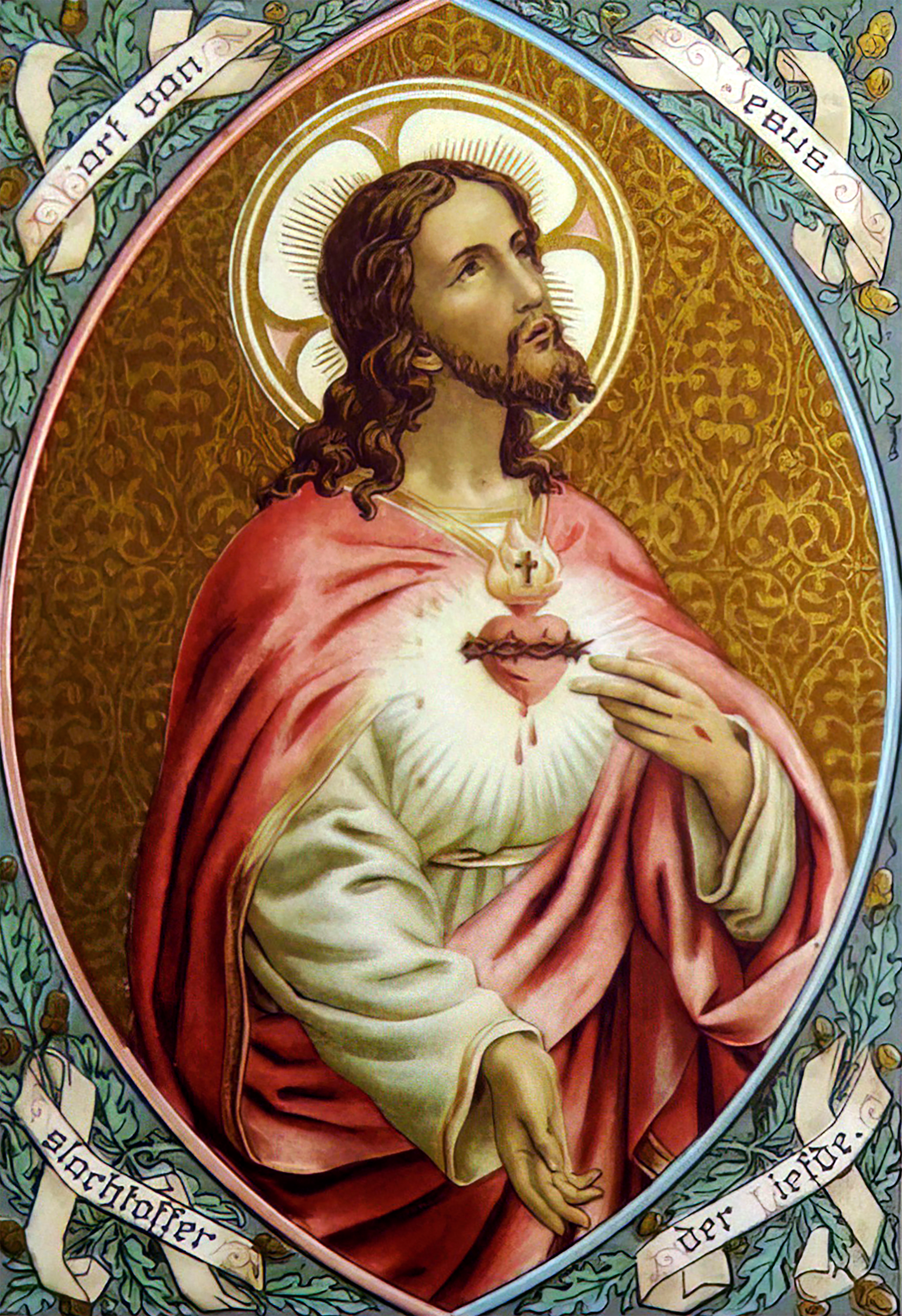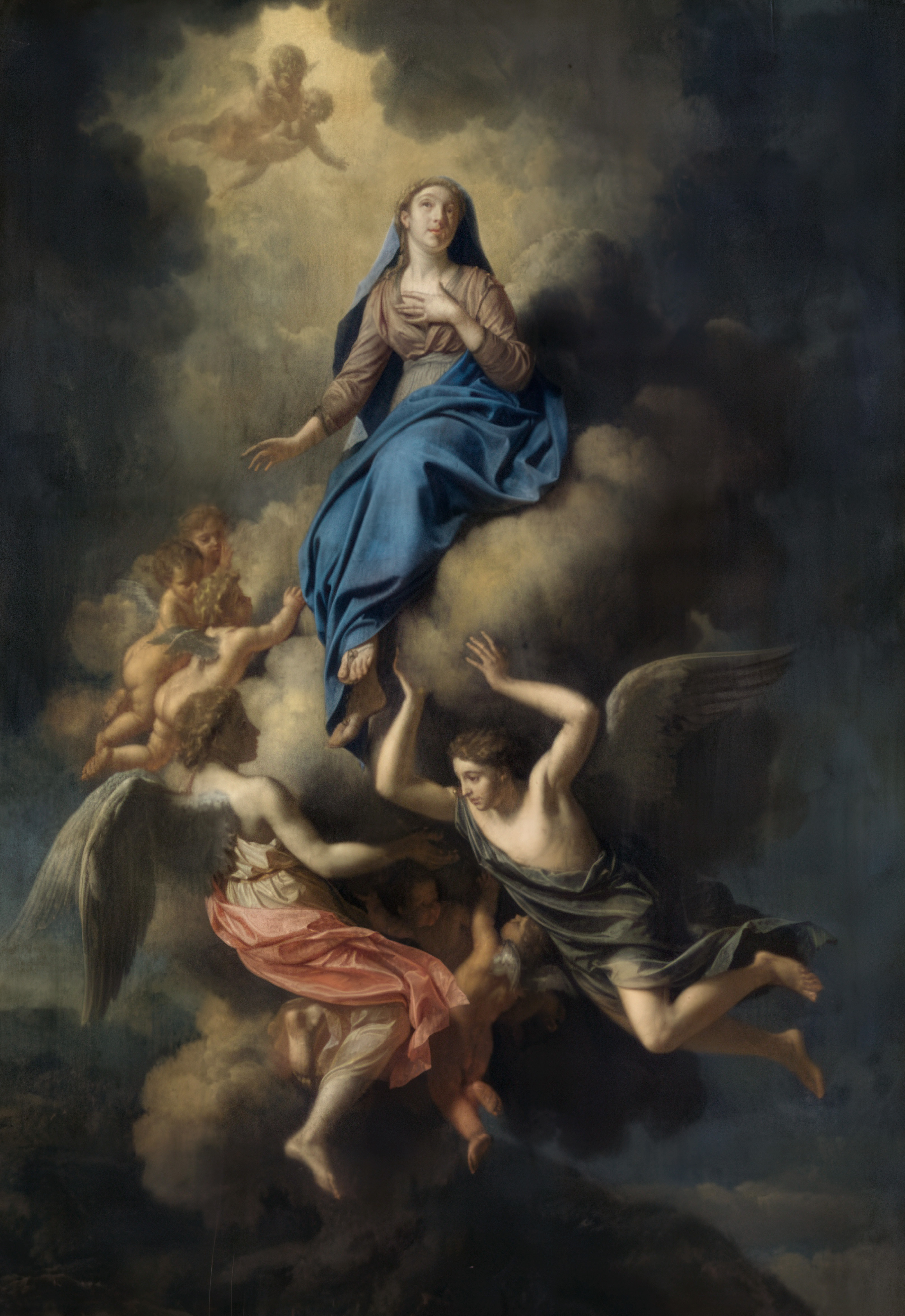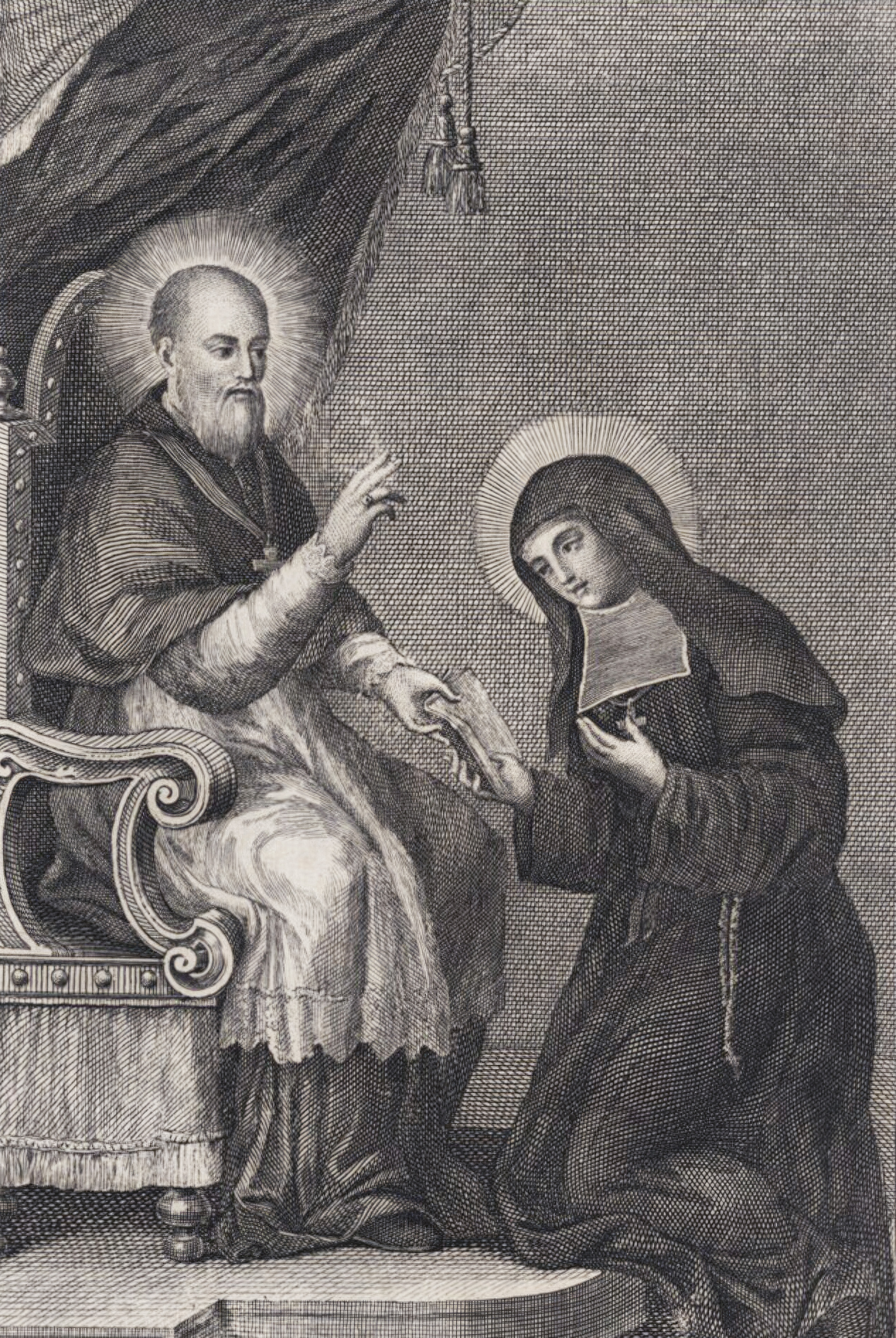I wonder how God feels about salvation history. He, like the king in today’s Gospel, has invited many people to a glorious banquet, a celebration. He worked hard to prepare it. I know how I feel when I put extra effort into an event. In inviting people to our home for a meal, we are offering not just food, but part of ourselves. God does the same. He invites us to share in the heavenly banquet and eternity with Him. And many do not come, or make light of the invitation, or worse, kill the servant. How must God feel about this? We know He is a loving, merciful God but that He has also been angry at times, so does it follow that He also feels sad at the rejection of His invitation?
This reading often makes me feel sad for Him. The king killed the calves, readied the oxen and the dinner, and was rejected by his first invited guests and forced to invite everyone who was willing to come to the feast.
I know how I’ve felt when I’ve experienced rejection, so I feel sad for God. I also feel sad for those who have rejected His invitation to communion with Him through the Holy Mass and the sacraments. Being close to God and encountering Him in this way has brought me much joy and I want others to feel the same – especially family and friends. Not everyone does though, and while I know I can only invite and I can’t change hearts, my own heart still feels sad for those who have opted not to follow God.
I’m glad the decision of whether they attend the heavenly banquet or get thrown out is determined by God. He knows our hearts. And that makes me happy.
Me pregunto cómo se ha de sentir Dios ante la historia de la salvación. Él, como el rey del Evangelio de hoy, invitó a muchas personas a un banquete glorioso, una celebración. Trabajó duro para prepararlo. Sé cómo me siento cuando me esfuerzo de más para un evento. Al invitar a la gente a nuestra casa a comer, no solo les ofrecemos comida, sino una parte de nosotros mismos. Dios hace lo mismo. Nos invita a compartir el banquete celestial y la eternidad con Él. Y muchos no vienen, o hacen caso omiso de la invitación, o peor aún, matan al sirviente. ¿Cómo se sentirá Dios al respecto? Sabemos que es un Dios amoroso y misericordioso, pero que también se ha enojado a veces, así que ¿se pone triste por el rechazo de su invitación?
Esta lectura a menudo me hace ponerme triste por Él. El rey mató los becerros, preparó los bueyes y la cena, y fue rechazado por sus primeros invitados y se vio obligado a invitar a todos los que estaban dispuestos a asistir a la fiesta.
Sé cómo me he sentido al experimentar el rechazo, así que me pongo triste pensando en Dios. También me entristece la idea de quienes han rechazado su invitación a la comunión con Él a través de la Santa Misa y los sacramentos. Estar cerca de Dios y encontrarme con Él de esta manera me ha traído mucha alegría y quiero que otros sientan lo mismo, especialmente mis familiares y amigos. Sin embargo, no todos quieren, y aunque sé que solo puedo invitar y no puedo cambiar corazones, mi corazón aún se pone triste por los que han optado no seguir a Dios.
Me alegra que la decisión de asistir al banquete celestial o de ser expulsados la toma Dios. Él conoce nuestros corazones. Y eso me alegra.
 Merridith Frediani loves words and is delighted by good sentences. She also loves Lake Michigan, dahlias, the first sip of hot coffee in the morning, millennials, and playing Sheepshead with her husband and three kids. She writes for Catholic Mom, Diocesan.com, and her local Catholic Herald. Her first book Draw Close to Jesus: A Woman’s Guide to Adoration is available at Our Sunday Visitor and Amazon. You can learn more at merridithfrediani.com.
Merridith Frediani loves words and is delighted by good sentences. She also loves Lake Michigan, dahlias, the first sip of hot coffee in the morning, millennials, and playing Sheepshead with her husband and three kids. She writes for Catholic Mom, Diocesan.com, and her local Catholic Herald. Her first book Draw Close to Jesus: A Woman’s Guide to Adoration is available at Our Sunday Visitor and Amazon. You can learn more at merridithfrediani.com.
Feature Image Credit: Tembela Bohle, pexels.com/photo/plates-and-wine-glass-on-table-1114425/
The views and opinions expressed in the Inspiration Daily blog are solely those of the original authors and contributors. These views and opinions do not necessarily represent those of Diocesan, the Diocesan staff, or other contributors to this blog.


 Mike Karpus is a regular guy. He grew up in Michigan’s Upper Peninsula, graduated from Michigan State University and works as an editor. He is married to a Catholic school principal, raised two daughters who became Catholic school teachers at points in their careers, and now relishes his two grandchildren, including the older one who is fascinated with learning about his faith. He also has served on a Catholic school board, a pastoral council and a parish stewardship committee. He currently is a lector at Mass, a Knight of Columbus, Adult Faith Formation Committee member and a board member of the local Habitat for Humanity organization. But mostly he’s a regular guy.
Mike Karpus is a regular guy. He grew up in Michigan’s Upper Peninsula, graduated from Michigan State University and works as an editor. He is married to a Catholic school principal, raised two daughters who became Catholic school teachers at points in their careers, and now relishes his two grandchildren, including the older one who is fascinated with learning about his faith. He also has served on a Catholic school board, a pastoral council and a parish stewardship committee. He currently is a lector at Mass, a Knight of Columbus, Adult Faith Formation Committee member and a board member of the local Habitat for Humanity organization. But mostly he’s a regular guy.
 Christine Arata is a San Francisco, California native. She lives a few blocks away from the ocean and a park. She finds nature inspiring. Her cat brings her comfort. She loves being creative not only with her writing but with almost everything, including her home cooking. Her studies in the Catholic faith are ongoing. In 2019, when she discovered St. Hildegard of Bingen was underrepresented by Catholics, she found a purpose. Her latest website, St. Hildegard’s Wisdom features blog posts about all of that:
Christine Arata is a San Francisco, California native. She lives a few blocks away from the ocean and a park. She finds nature inspiring. Her cat brings her comfort. She loves being creative not only with her writing but with almost everything, including her home cooking. Her studies in the Catholic faith are ongoing. In 2019, when she discovered St. Hildegard of Bingen was underrepresented by Catholics, she found a purpose. Her latest website, St. Hildegard’s Wisdom features blog posts about all of that: 
 Kate Taliaferro is an Air Force wife and mother. She is blessed to be able to homeschool, bake bread and fold endless piles of laundry. When not planning a school day, writing a blog post or cooking pasta, Kate can be found curled up with a book or working with some kind of fiber craft. Kate blogs at
Kate Taliaferro is an Air Force wife and mother. She is blessed to be able to homeschool, bake bread and fold endless piles of laundry. When not planning a school day, writing a blog post or cooking pasta, Kate can be found curled up with a book or working with some kind of fiber craft. Kate blogs at 
 Colleen Orchanian is a podcaster, blogger, and spiritual director who desires to help others have a more profound encounter with God. She is the author of three books: Nearer My God to Thee, Times of Grace, and Lingering with God. Her podcast is Food for Thought (Spiritually Speaking). You can learn more at
Colleen Orchanian is a podcaster, blogger, and spiritual director who desires to help others have a more profound encounter with God. She is the author of three books: Nearer My God to Thee, Times of Grace, and Lingering with God. Her podcast is Food for Thought (Spiritually Speaking). You can learn more at 
 Ben Hooper is originally from Maryland, having been adopted from Korea and growing up in the Catholic faith. He went to Franciscan University to dive deeper into his faith and eventually graduated with a degree in Business Management. He loves musical theater, sports, spending time with his wife Lily and their dog Kolbe.
Ben Hooper is originally from Maryland, having been adopted from Korea and growing up in the Catholic faith. He went to Franciscan University to dive deeper into his faith and eventually graduated with a degree in Business Management. He loves musical theater, sports, spending time with his wife Lily and their dog Kolbe.
 Kathryn Mulderink, MA, is married to Robert, Station Manager for Holy Family Radio. Together they have seven children (including Father Rob), and eleven grandchildren. She is President of the local community of Secular Discalced Carmelites and has published five books and many articles. Over the last 30 years, she has worked as a teacher, headmistress, catechist, Pastoral Associate, and DRE, and as a writer and voice talent for Catholic Radio. Currently, she serves the Church by writing and speaking, and by collaborating with various parishes and to lead others to encounter Christ and engage their faith. Her website is
Kathryn Mulderink, MA, is married to Robert, Station Manager for Holy Family Radio. Together they have seven children (including Father Rob), and eleven grandchildren. She is President of the local community of Secular Discalced Carmelites and has published five books and many articles. Over the last 30 years, she has worked as a teacher, headmistress, catechist, Pastoral Associate, and DRE, and as a writer and voice talent for Catholic Radio. Currently, she serves the Church by writing and speaking, and by collaborating with various parishes and to lead others to encounter Christ and engage their faith. Her website is 
 Deanna G. Bartalini, M.Ed.; M.P.A., is a certified spiritual director, writer, speaker and content creator. The
Deanna G. Bartalini, M.Ed.; M.P.A., is a certified spiritual director, writer, speaker and content creator. The 


